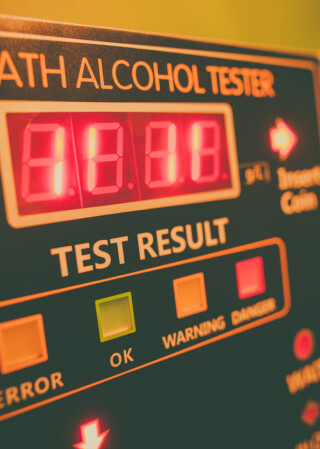Not only is drink driving a criminal offence, it also hinders your own safety and the safety of other motorists. Concentration and judgement are key requirements for driving, especially when considering external factors such as changing traffic situations and weather.
Police have the power to require any driver on a NSW road at random to stop for the purposes of conducting a breath analysis test under Division 2 of Schedule 3 Road Transport Act 2013 (NSW). Refusing or failing to stop your vehicle at the request of police for an RBT carries a penalty of up to $1,100 fine. If a driver is found to be driving over the legal limit whilst under the influence of alcohol or drugs, they will be charged accordingly.
In circumstances where a driver refuses to part take in a breath analysis, they may be arrested and conveyed to a police station and charged. Police also have the power to use reasonable force in order to complete a sufficient breath analysis.
The penalties for drink/drug driving are severe. For first time offenders, the offence carries a maximum fine of $3,300 and imprisonment for 18 months, and for repeat offenders, a maximum fine of $5,500, and imprisonment for 2 years.
Similarly, if it is proved that a driver was driving with drugs in their system, they may face fines of up to $2,200, an automatic 12-month licence disqualification and a sentence of imprisonment for up to nine months for a first time offence.
Attaining legal advice is often used as a defence, however if a driver is found to be drink/drug driving, this defence is not adequate. A driver is free to consult a lawyer, however cannot do so prior to taking the breath analysis test.
The contents of this publication are for reference purposes only. This publication does not constitute legal advice and should not be relied upon as legal advice. Specific legal advice should always be sought separately before taking any action based on this publication.


